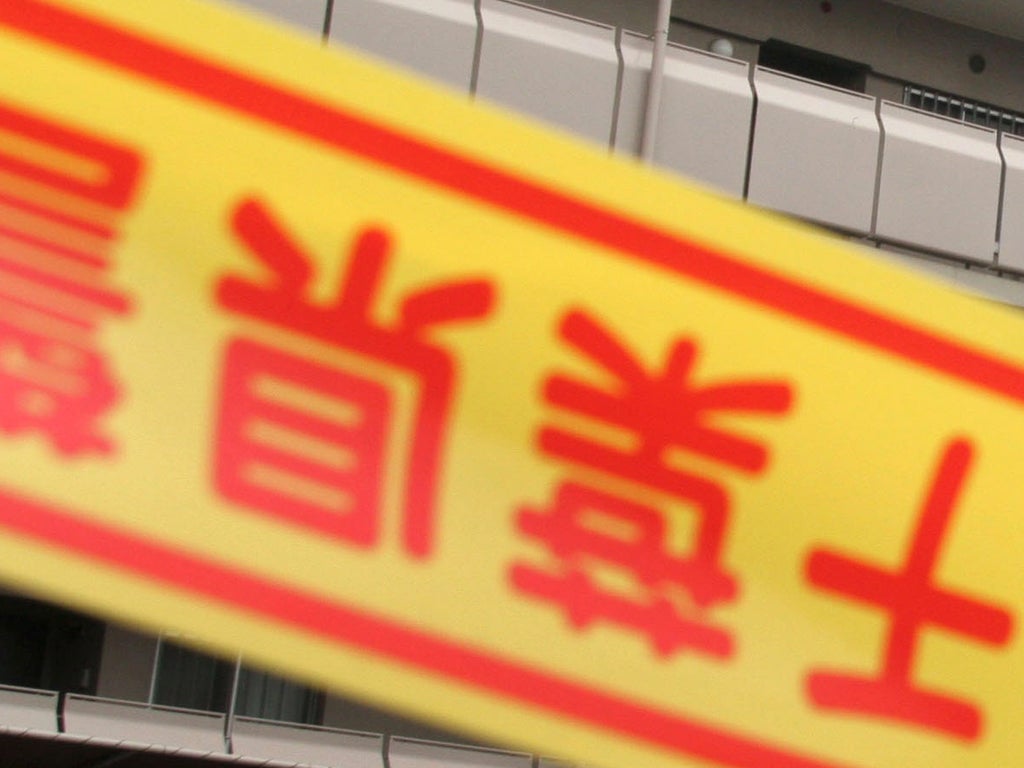Japan: Hunt on for serial killer who left a haiku clue
Man in his sixties sought after five people are killed in remote rural village

Your support helps us to tell the story
From reproductive rights to climate change to Big Tech, The Independent is on the ground when the story is developing. Whether it's investigating the financials of Elon Musk's pro-Trump PAC or producing our latest documentary, 'The A Word', which shines a light on the American women fighting for reproductive rights, we know how important it is to parse out the facts from the messaging.
At such a critical moment in US history, we need reporters on the ground. Your donation allows us to keep sending journalists to speak to both sides of the story.
The Independent is trusted by Americans across the entire political spectrum. And unlike many other quality news outlets, we choose not to lock Americans out of our reporting and analysis with paywalls. We believe quality journalism should be available to everyone, paid for by those who can afford it.
Your support makes all the difference.Police in rural Japan are searching for a 63-year-old man suspected of having killed five people, burned down two houses and left behind a haiku poem as a clue.
On Sunday night, the bodies of 71-year-old Makoto Sadamori and his wife Kiyoko, 72, were found in the smouldering remains of their home, in a mountain hamlet in the western Yamaguchi prefecture.
Around 80 metres away, police came across a third body, thought to be that of a 79-year-old woman, Miyako Yamamoto, whose house had begun to burn at around 9pm, approximately the same time as the Sadamori home.
The remote village is said to contain just 10 households, a temple and a community centre, so when two more bodies were found in other nearby homes on Monday, the dead amounted to a third of its population.
Like their fellow victims, 73-year-old Satoko Kawamura and Fumito Ishimura, 80, are believed to have been battered to death. All five reportedly died instantly after being struck on the head with a blunt instrument.
Criminologist Jinsuke Kageyama told the Japan Times: “All of the victims must have been asleep when they were attacked… Even elderly people resist. It would have been difficult to strike them repeatedly only on the head.”
Police have yet to find a murder weapon, but think they may have discovered a clue to the killer’s identity: a haiku poem, fixed to a window at the home of their chief suspect, Yamamoto’s 63-year-old neighbour, which reads: “Setting on fire/ Smoke gives delight/ To a country fellow.”
The haiku is a traditional Japanese form of verse, consisting of 17 syllables in three lines. Most haiku use imagery drawn from nature as a metaphor for human emotions.
There was no trace of the poem’s author, who has not been named. Two cars were still in his garage, however, and police began their manhunt in the woods around the village last night.
According to the hamlet’s surviving residents, the man was known to be unfriendly and something of a troublemaker.
One of the victims, Satoko Kawamura, had reportedly complained about the man’s dog. Once, after she flinched from the pet in fear, the man supposedly shouted: “Are you going to batter him to death?”
Another resident of the village reportedly told police the haiku had been in the man’s window for some time. There had been a small fire at Kawamura’s home around five years ago, and another local house burned to the ground in 2011. Police said they were examining possible connections between the cases.
According to one Japanese newspaper, Yomiuri Shimbun, the suspect had also told neighbours that if he killed someone, he would be immune from prosecution because he is on medication.
Join our commenting forum
Join thought-provoking conversations, follow other Independent readers and see their replies
Comments